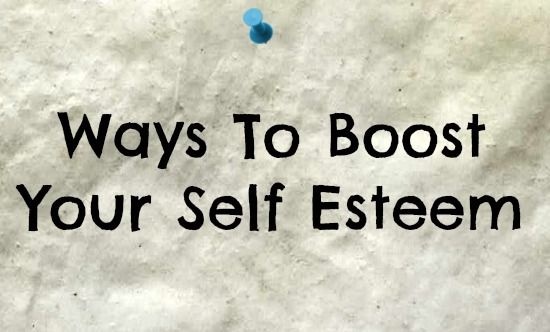
1. Take a Self-Esteem Inventory.
You can’t fix what you don’t know. This is one of the core components of cognitive-behavioral therapy (CBT). Before you get to work on putting CBT to work, you have to spend a fair amount of time identifying irrational thoughts and what-not.
The same is true for your self-esteem. To simply generalize and say, “I suck. I’m a bad person. I can’t do anything.” is to tell yourself a simple but often convincing lie. I’m here to tell you that it’s not true. We all suck from time to time. The solution isn’t to wallow in suck-age as the core of your identity, but to acknowledge it and move on.
Get a piece of paper. Draw a line down the middle of it. On the right-hand side, write: “Strengths” and on the left-hand side, write: “Weaknesses.” List 10 of each. Yes, 10. That may seem like a lot of the Strengths side if you suffer from poor self-esteem, but force yourself to find all 10.
If you’re having difficulty coming up with a whole 10, think about what others have said to you over the years. “Thanks for listening to me the other night when all I did was talk your ear off!” “You did a great job at work with that project, thanks for pitching in.” “I’ve never seen someone who enjoyed housework as much as you do.” “You seem to have a real knack for telling a story.” Even if you think the Strength is stupid or too small to list, list it anyway. You may be surprised at how easy it is to come up with all 10 when you approach it from this perspective.
This is your Self-Esteem Inventory. It lets you know all the things you already tell yourself about how much you suck, as well as showing you that there are just as many things you don’t suck at. Some of the weaknesses you may also be able to change, if only you worked at them, one at a time, over the course of a month or even a year. Remember, nobody changes things overnight, so don’t set an unrealistic expectation that you can change anything in just a week’s time.
2. Set Realistic Expectations.
Nothing can kill our self-esteem more than setting unrealistic expectations. I remember when I was in my 20s, I had thought, “I need to be a millionaire by the time I’m 30 or I’m going to be a failure.” (Don’t even get me started about how many things are wrong with that statement.) Needless to say, 30 came and I was nowhere close to being a millionaire. I was more in debt than ever, and owning a home was still a distant dream. My expectation was unrealistic, and my self-esteem took a blow when I turned 30 and saw how far away such a goal was.
Sometimes our expectations are so much smaller, but still unrealistic. For instance, “I wish my mom (or dad) would stop criticizing me.” Guess what? They never will! But that’s no reason to let their criticism affect your own view of yourself, or your own self-worth. Check your expectations if they keep disappointing you. Your self-esteem will thank you.
This may also help you to stop the cycle of negative thinking about yourself that reinforce our negative self-esteem. When we make set realistic expectations in our life, we can stop berating ourselves for not meeting some idealistic goal.
3. Set Aside Perfection and Grab a Hold of Accomplishments… and Mistakes.
Perfection is simply unattainable for any of us. Let it go. You’re never going to be perfect. You’re never going to have the perfect body, the perfect life, the perfect relationship, the perfect children, or the perfect home. We revel in the idea of perfection, because we see so much of it in the media. But that is simply an artificial creation of society. It doesn’t exist.
Instead, grab a hold of your accomplishments as you achieve them. Acknowledge them to yourself for their actual value (don’t de-value them by saying, “Oh, that? That’s just so easy for me, no big deal.”). It may even help to keep a little journal or list of things you accomplish. Some people might even do this on a day-by-day basis, while others might feel more comfortable just noting them once a week or even once a month. The key is to get to your smaller goals and move on from each one, like a connect-the-dots game of life.
It’s just as important to take something away from the mistakes you make in life. It doesn’t mean you’re a bad person, it simply means you made a mistake (like everyone does). Mistakes are an opportunity for learning and for growth, if only we push ourselves out of the self-pity or negative self-talk we wallow in after one, and try and see it from someone else’s eyes.
4. Explore Yourself.
“Know thyself” is an old saying passed down through the ages, to encourage us to engage in self-exploration. Usually the most well-adjusted and happiest people I meet are people who have gone through this exercise. It isn’t just about knowing your strengths and weaknesses, but also opening yourself up to new opportunities, new thoughts, trying out something new, new viewpoints, and new friendships.
Sometimes when we’re down on ourselves and our self-esteem has taken a big hit, we feel like we have nothing to offer the world or others. It may be that we simply haven’t found everything that we do have to offer — things we haven’t even considered or thought of yet. Learning what these are is simply a matter of trial and error. It’s how people become the people they’ve always wanted to become, by taking risks and trying things they wouldn’t ordinarily do.
5. Be Willing to Adjust Your Own Self-Image.
Self-esteem is useless if it’s based upon an older version of you that no longer exists. I used to be good at many things I’m no longer good at. I excelled in math while in high school, but couldn’t do a calculus problem today to save my life. I used to think I was pretty smart, until I learned just how little I knew. I could play trombone pretty well at one point, but no longer.
But all of that’s okay. I’ve adjusted my own beliefs about my self and my strengths as I go along. I’ve become a better writer, and learned more about business than I ever knew before. I don’t sit around and say, “Geez, I really wish I could play trombone like I used to!” (And if I cared enough to really think that, I would go and take some lessons to get good at it again.) Instead, I evaluate myself based upon what’s going on in my liferight now, not some distant past version of me.
Keep adjusting your self-image and self-esteem to match your current abilities and skills, not those of your past.
6. Stop Comparing Yourself to Others.
Nothing can hurt our self-esteem more than unfair comparisons. Joe has 3,000 Facebook friends while I only have 300. Mary can outrun me on the field when we play ball. Elizabeth has a bigger house and a nice car than I do. You can see how this might impact our feelings about ourselves, the more we do this sort of thing.
I know it’s tough, but you need to stop comparing yourself to others. The only person you should be competing against is yourself. These comparisons are unfair because you don’t know as much as you think you do about these other people’s lives, or what it’s really like to be them. You think it’s better, but it may be 100 times worse than you can imagine.




